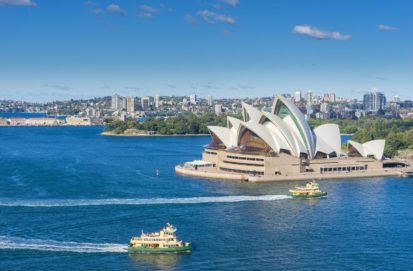Australia: Third Working Holiday Maker (WHM) visa program
As of July 1, 2019, individuals on their second working holiday visa (subclass 417) or work and holiday visa (subclass 462) will be able to apply for a third visa if they complete six months’ “specified work” in regional Australia. The types of work and regional areas are in line with the requirements for the second visa.
Impact
Applicants will not be able to apply for the third visa until January 2020; the six months’ work must be carried out after July 1, 2019.
Background
The WHM program allows individuals aged 18 to 30 (up to 35 years for Canadian and Irish citizens) to travel to Australia and work for up to six months over a 12-month period.
The six-month period commences from the date the visa holder begins work and is calculated on the length of time passed.
The second working holiday visa can be applied for, provided the applicant has completed three months of “specified work” in regional Australia.
Looking ahead
The requirements and criteria for the 417 and 462 visa subclasses will differ and are available to different nationalities.
Individuals applying for the working holiday visa cannot be in Australia at the time of application.
There are exceptions where the current migration policy allows employers to retain working holiday visa holders for a longer period. Criteria includes:
- Work in different locations
- Plant and animal cultivation anywhere in Australia
- Work in certain industries in Northern Australia only
This summary was prepared using information obtained from the Australian Department of Home Affairs.
Disclaimer: The above information is provided for general information purposes only and should not be construed as legal advice. If you have any further inquiries regarding the applicability of this information, please contact Debbie Beynon, Regional Immigration Manager, APAC.
Brazil: Ministry structural changes
In 2019 Jair Bolsonaro was elected as President of Brazil and made some structural changes to the Ministries. For example, the resignation of the Ministry of Labor.
The Ministry of Justice is now the authority to analyze and approve applications for residence permits. Despite all the changes, the Ministry of Foreign Affairs is still responsible for issuing visas abroad.
Impact
As a result, the authorities tend to be more rigorous when analyzing the visa requests and granting permission of the resident, even if it is faster than usual in the analysis of the process.
Looking ahead
To avoid processing delays, the applicant’s information must be reviewed in close detail and all related documents checked for eligibility.
This summary was prepared using information obtained from the Ministry of Justice and Public Safety (in Portuguese).
Disclaimer: The above information is provided for general information purposes only and should not be construed as legal advice. If you have any further inquiries regarding the applicability of this information, please contact Rafael Pavanelli, Client Services Manager, Brazil, or Roberta Carnaccini, Global Operations Director, Immigration
Lithuania: Immigration processing timeline reduces
On July 1, 2019, the Lithuanian Migration Department will launch its online submissions process for immigration applications.
As a result, the following requirements have been removed from the work authorization process:
- Diploma certification is no longer required – a decrease in processing of approximately 30 days
- Individuals employed in a non-shortage occupation with a salary of less than 1.5 times the national monthly average are exempt from high qualification assessments at the Lithuanian Centre for Qualification Assessment in Higher Education. This change will eliminate an administrative step.
Impact
Online submissions and removal of the qualifications check will expedite immigration processing.
EU citizens are also expected to benefit from online registrations for stays via the Migris platform (in Lithuanian).
Looking ahead
Lithuania aims to attract more start-up investments and young talent for study. Further changes are expected to streamline the application process for foreign nationals seeking to work, study or invest in Lithuania.
We will provide further guidance following implementation in the second half of 2019.
This summary was prepared using information obtained from the immigration authorities in Lithuania (in Lithuanian)
Disclaimer: The above information is provided for general information purposes only and should not be construed as legal advice. If you have any further inquiries regarding the applicability of this information, please contact Laxmi Vikraman, Regional Immigration Manager, EMEA.
Malaysia: Expatriate Service Division processing fee increases
The Expatriate Service Division (ESD) will increase processing fees for various applications on June 1, 2019.
Impact
The new fees reflect the enhancements put in place to better facilitate and meet employer needs for skilled expatriates, such as:
- Online payments to reduce physical payments and repeat visits to the center.
- New online services for “Transfer of Endorsement” and “Cancellation of Passes.”
- MYHelp – a new function providing online chat support between companies and helpdesk officers.
- The system will also enable uploads between 10Mb and 20Mb for every attachment.
- Branches established outside of the Klang Valley, located in Penang and Johor.
- Kiosk station facilities at the MYXpats centers.
- Enhanced online features and existing processes to improve customer experience.
- Simplified handbook together with a detailed version of the MYXpats guidebook.
Changes to the fees are detailed below:
| Application type | Current fee including 6% SST (MYR) | New fee including 6% SST (MYR) | % increase |
| Employment Pass | 318 | 1,060 | 333 |
| Dependent Pass | 74.20 | 530 | 714 |
| Long Term Social Visit Pass (under EP) | 74.20 | 530 | 714 |
| Professional Visit Pass | 0 | 1,060 | 100 |
This summary was prepared using information obtained from the Immigration Department of Malaysia.
Disclaimer: The above information is provided for general information purposes only and should not be construed as legal advice. If you have any further inquiries regarding the applicability of this information, please contact Debra Beynon, Regional Immigration Manager, APAC.
Philippines: Apostille convention simplifies document authentication
The Department of Foreign Affairs (DFA) has advised that it will no longer issue authentication certificates. Instead, it will affix an “Apostille” to documents for use abroad. The “Apostille” is a certificate giving a public document legal effect in other countries.
Impact
After authentication there are no additional requirements for legalization provided the country or destination territory is a member of the Apostille Convention.
Supporting documents executed in Apostille-contracting countries and territories (excluding Austria, Finland, Germany and Greece) no longer require legalization from the Philippine Embassy or Consulate General for work permit and residency applications.
Looking ahead
Existing authentication and legalization requirements still apply in countries and territories that are not Apostille-contracting members. These documents still require authentication from the Philippine Embassy or Consulate General before use.
The switch to Apostille will simplify document gathering and the legalization process.
Contact us for advise on the authentication and legalization requirements.
This summary was prepared using information obtained from the Department of Foreign Affairs.
We track policy changes in over 120 countries. Find out how we can help you in this short video.




